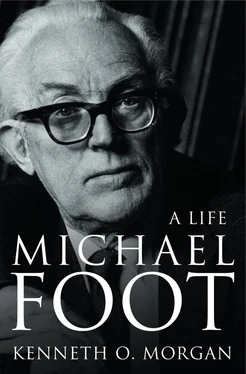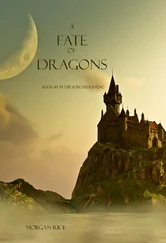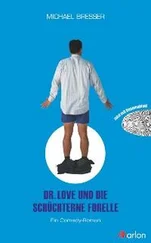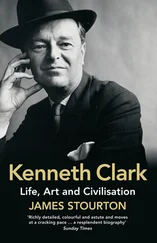On the stump in Plymouth, Foot fought a fiercely socialist campaign. Inevitably he confined himself to his constituency, with the occasional foray to help Lucy Middleton, the Labour candidate in the neighbouring constituency of Plymouth Sutton. Housing and employment were perhaps the major issues. Foot pressed again the need for help for the Plymouth plan, and for financial aid from the Admiralty for an extension of the Devonport dockyard. He had powerful support from Aneurin Bevan at the Guildhall in Devonport. The Tories, Bevan declared, were only puppets of big business: ‘I have seen their limbs twitch as the puppet-masters pull the string.’ He called for the nationalization of coal, steel and the Bank of England. With reference to the Conservatives in the Lords, Bevan demanded, with rhetoric and reason, ‘Why should we have to put up with this antediluvian chamber of pampered parasites?’ 46 Foot himself, for all his neo-pacifist past, strongly upheld the need to refurbish the dockyard and strengthen the Royal Navy (cue for more references to the Spanish Armada and Drake’s Drum).
The hapless Hore-Belisha was battered to the end. He was accused of failing to give the British Army proper equipment in Belgium in 1940, of having contemplated war with Russia, and of genuflection before Mussolini and also Franco. ‘Where, oh where, is our wandering boy tonight?’ speculated Foot. 47 Hore-Belisha’s brief record as Minister for National Insurance was said to have included refusing full compensation for servicemen and their families, and the idea of family allowances. Credit for the invention of Belisha beacons was omitted. Michael was not the only Foot engaged in these polemics against an old adversary compared by Isaac Foot back in 1935 with Judas Iscariot. Not far away in Liskeard, Cornwall, brother John (‘Major’) Foot repeated, with even greater passion, Michael’s points about the Mussolini medal and the vote against Churchill in 1942 that disfigured Hore-Belisha’s past. He shouted at Hore-Belisha from the balcony of the Liskeard Liberal Club as he passed through the town centre a few yards away: ‘Has such a reckless adventurer ever come into politics and public life who has had [sic] so much folly in such a short time? I hope my brother is going to do a very good job of clearing up and putting this man out of public life for ever.’ 48 The family solidarity of the Foots took precedence over any thought of narrow partisanship.
The influence of Michael Foot and his works was also apparent in Labour’s national campaign. Ernest Bevin and scores of other Labour candidates used ‘guilty men’ themes and vocabulary in attacking the Tories’ pre-war record on foreign and defence policy, and drawing a distinction between Winston Churchill, the war leader, and the party which he was now leading in the election. Labour published a pamphlet on these lines entitled The Guilty Party , while the Conservatives’ riposte, perhaps unwisely entitled Guilty Men? , which focused on such themes as Labour’s pre-war opposition to conscription, tended to have its concluding question mark forgotten. 49
On polling day, 5 July, the local Plymouth newspaper, the Conservative-inclined Western Morning News , forecast a five thousand majority for Hore-Belisha. It also prophesied that Isaac Foot would ‘sweep’ Tavistock and John Foot would carry Bodmin. 50 In the Foot household it was agreed that the three Liberals, including Dingle in Dundee, would all get home. The one member of the family who stood no chance at all, despite his plucky campaign, was Michael in his straight fight in Devonport. There followed an uneasy wait of three weeks while service votes were collected. On 26 July the dramatic news came through. The dams had broken. Labour had made over two hundred gains and won 393 seats, a landslide majority of more than 180 over the Tories. The great war leader, Churchill, had been cataclysmically overthrown by the almost anonymous Attlee, on whom Hore-Belisha had poured derision as Harold Laski’s ‘office-boy’. And Devonport had shared in this triumph, as had indeed the other two Plymouth constituencies. A brief tenure of Plymouth Drake in 1929–31 had been Labour’s sole victory in the city before. Now Bert Medland, a retired civil servant who had been Labour’s Mayor of Plymouth in 1935, won the Drake constituency, while Lucy Middleton, the wife of the long-term former party General Secretary whom Michael had met before the 1935 election, captured Sutton as well.
In Devonport Michael Foot had won on a 14 per cent swing, gained on a poll of 71.1 per cent, with 13,395 votes to Hore-Belisha’s 11,382, a majority of 2,013, or 8.2 per cent. The election expenses showed how frugal the Labour campaign had been. Foot had just £ 30 of charged personal expenses, plus £ 23.18 s .3 d . for his agent. By contrast, the defeated Hore-Belisha ran up £ 148.7 s . personal expenses and no less than £ 106.10 s .10 d . for his agent. 51 Contrary to forecasts, Michael was in fact the only Foot to be returned amidst a general Liberal collapse everywhere in the country. Isaac, now Lord Mayor of Plymouth, lost to the Tories in Tavistock by nearly six thousand. John trailed by over two thousand in Bodmin. Most stunning of all, Dingle came fifteen thousand votes behind the two Labour candidates (one being John Strachey) in the two-Member constituency of Dundee. In the News Chronicle Ian Mackay noted that Michael Foot was one of several Labour journalists elected, including J. P. W. Mallalieu, Maurice Webb, Haydn Davies, Garry Allighan, Hector McNeill, Tom Driberg, Vernon Bartlett and Konni Zilliacus, a new sociological trend. 52 After the Devonport result was declared there was mass public rejoicing around the Guildhall in Plymouth. Then Michael and his new love Jill more privately celebrated victory and the new dawn, political and personal, that it would surely bring.
His election to Parliament marked the climax of an extraordinary war for Michael Foot. It had made him a prominent editor, an instantly known countrywide campaigner and a nationally celebrated author. Guilty Men had made him a celebrity of a kind while still in his late twenties. It attached the sheen of patriotism to his socialism. Some critics later surmised that he remained stuck in that war, eternally berating Chamberlain and his acolytes, celebrating El Alamein, Stalingrad and the invasion of Normandy, still holding fast to the values and ideas of that increasingly distant conflict. Memories of the Second World War, nourished more avidly in Britain than in any other combatant country, right down to the sixtieth anniversary of VE-Day in 2005, remained an essential framework for the sense of historic identity. They encouraged a vision of a dauntless island race standing alone while other, feebler Continental nations plunged into collaboration or collapse. The memory worked against the sense that Britain was part of Europe. It fostered a long-term anti-Germanism. But it was legitimate, too, to declare that the war had brought not only a great triumph for courage and perseverance, but also a great opportunity to avoid the betrayals of post-1918 which older men like Attlee, Bevin, Morrison and Cripps recalled all too well. After all, it was their victory, just as much as Churchill’s. One government minister, the seventy-six-year-old Lord Addison, had actually been part of that earlier post-war government as Minister of Health, and was well aware of the broken pledges then which had led to his own eventual resignation from the Liberals to join the Labour Party.
For Michael Foot, for all his bewildering changes of outlook and occupation since his Oxford days, it was a thrilling moment, another 1789. As his old friend A. J. P. Taylor was memorably to write in the final sentence of English History 1914–1945 , ‘England had risen, just the same.’ 53 In the columns of the press the new Michael Foot MP recalled the French socialist thinker Saint-Simon asking his servant to tell him every morning: ‘Get up, M. le Comte, because you have great things to do.’ It was a story he had picked up from one of his cherished books, Ignazio Silone’s School for Dictators . Foot did not believe in servants, but the mood and the message were no less resonant, just the same.
Читать дальше












